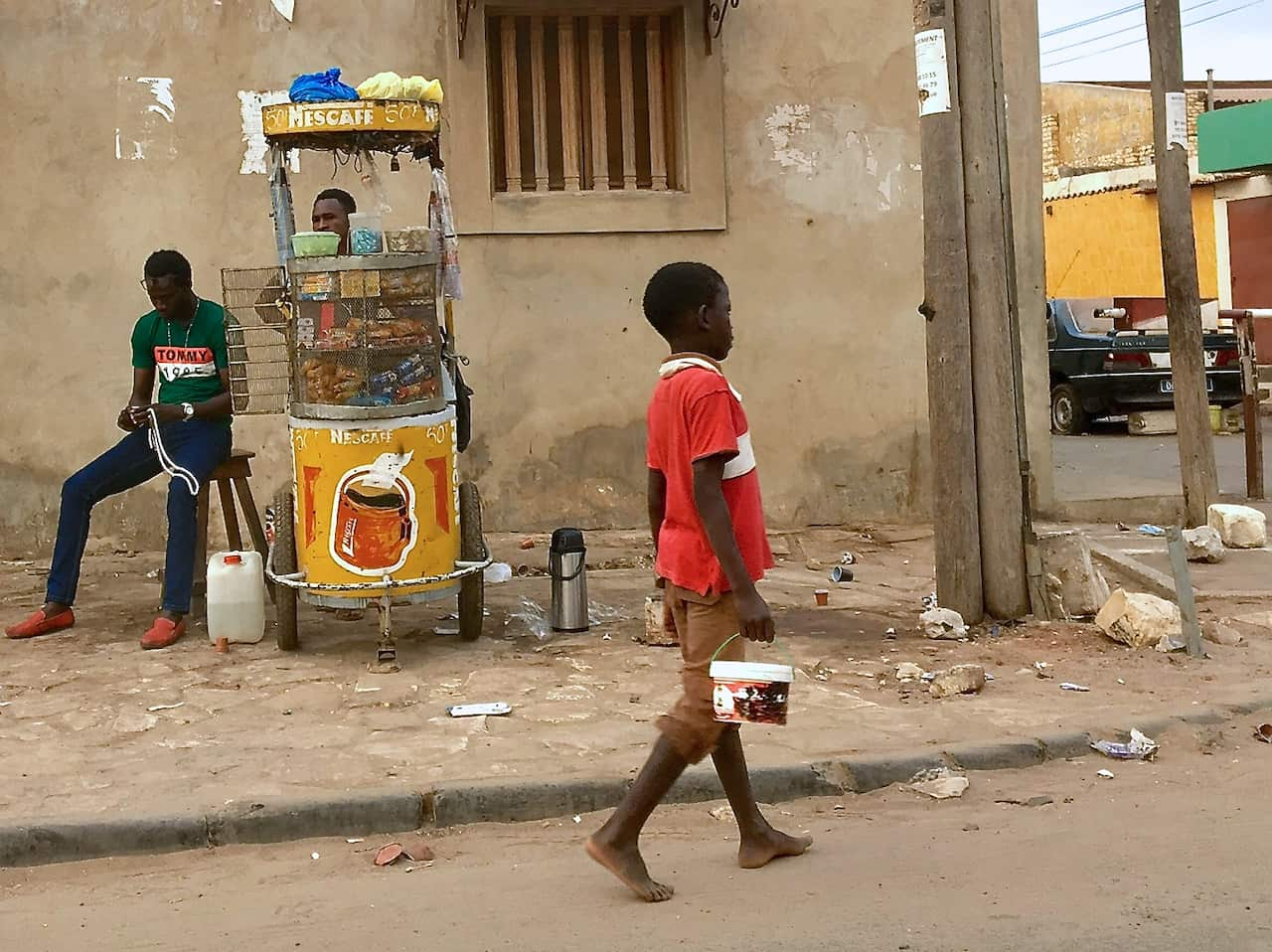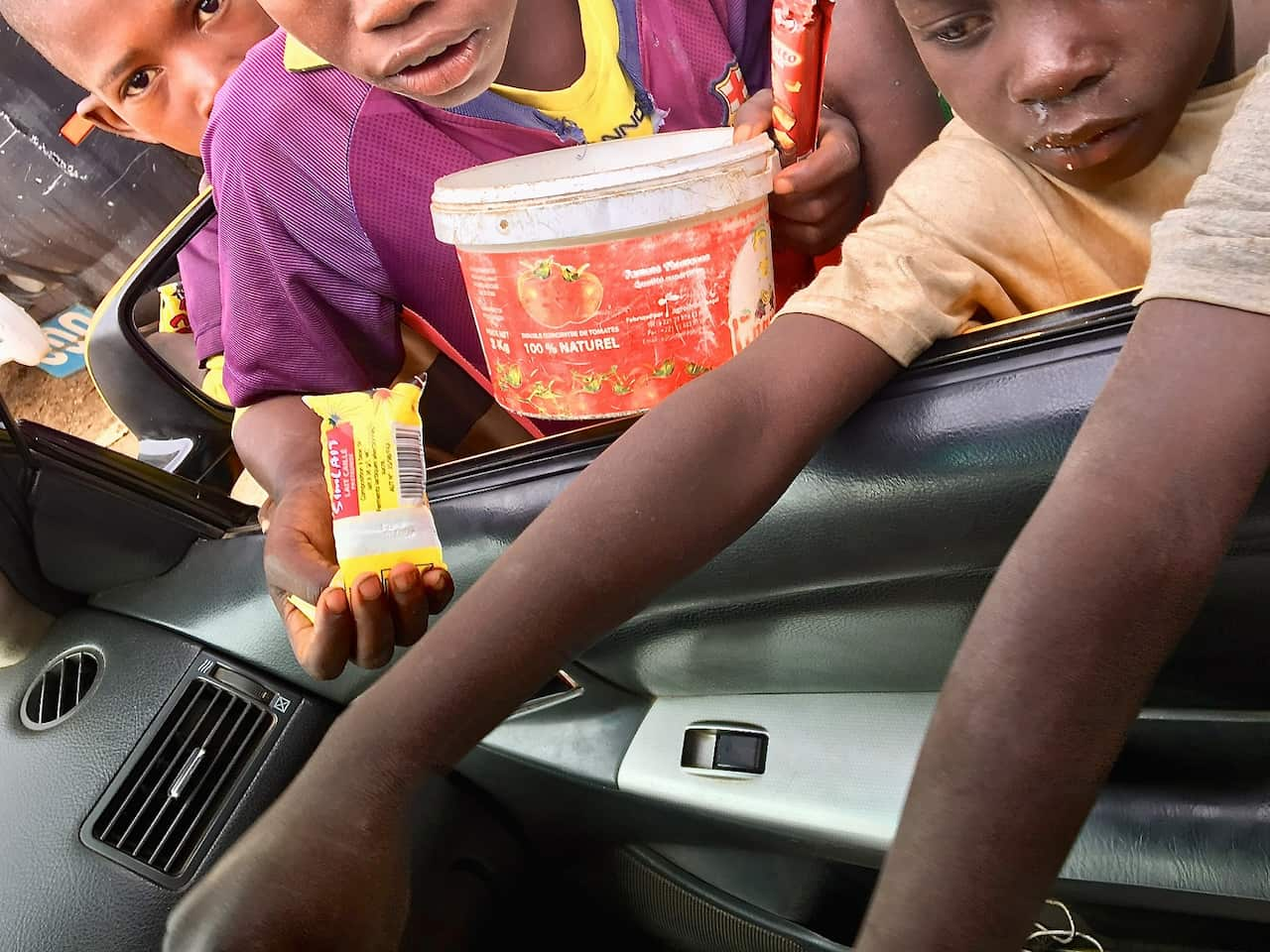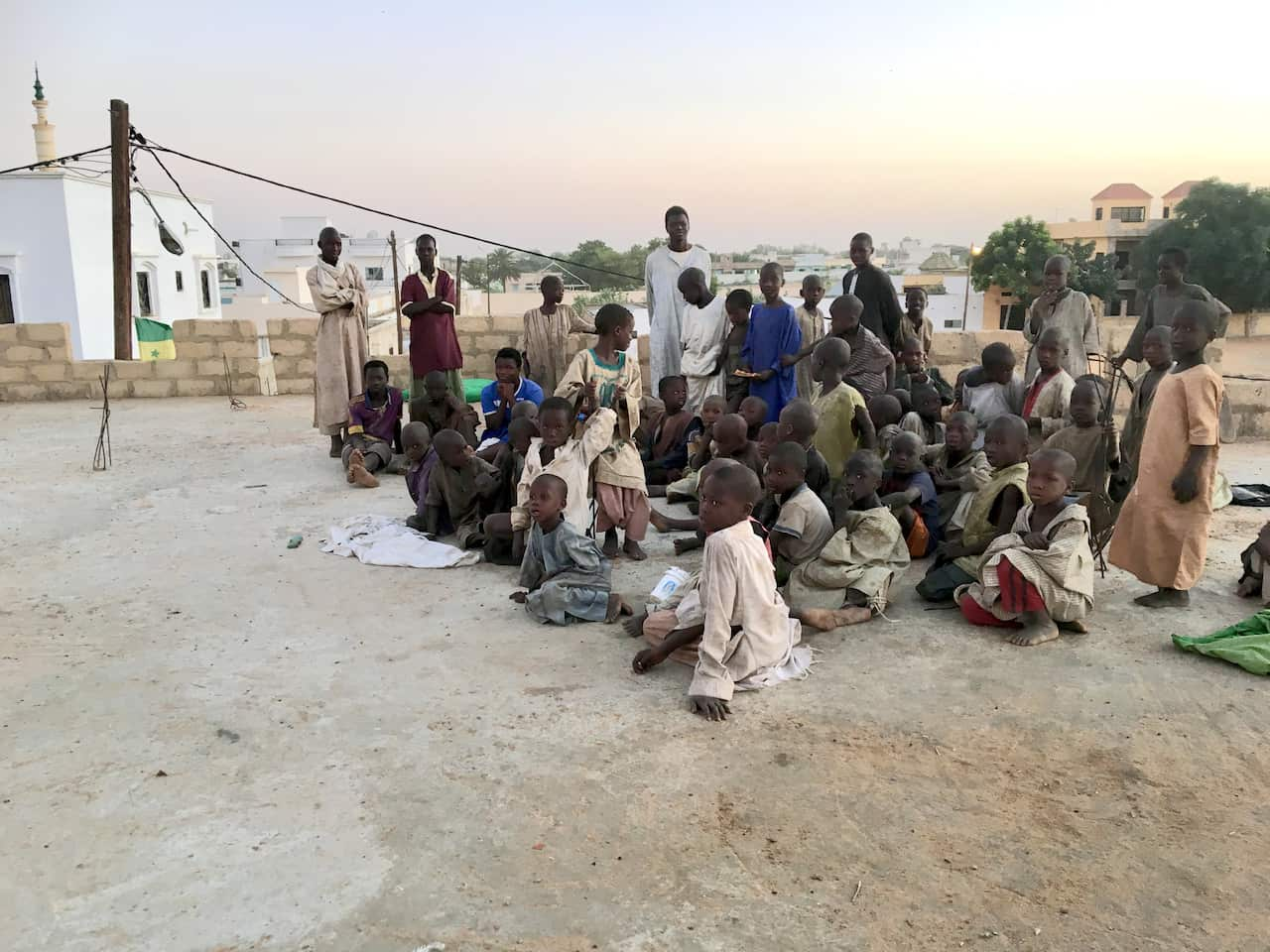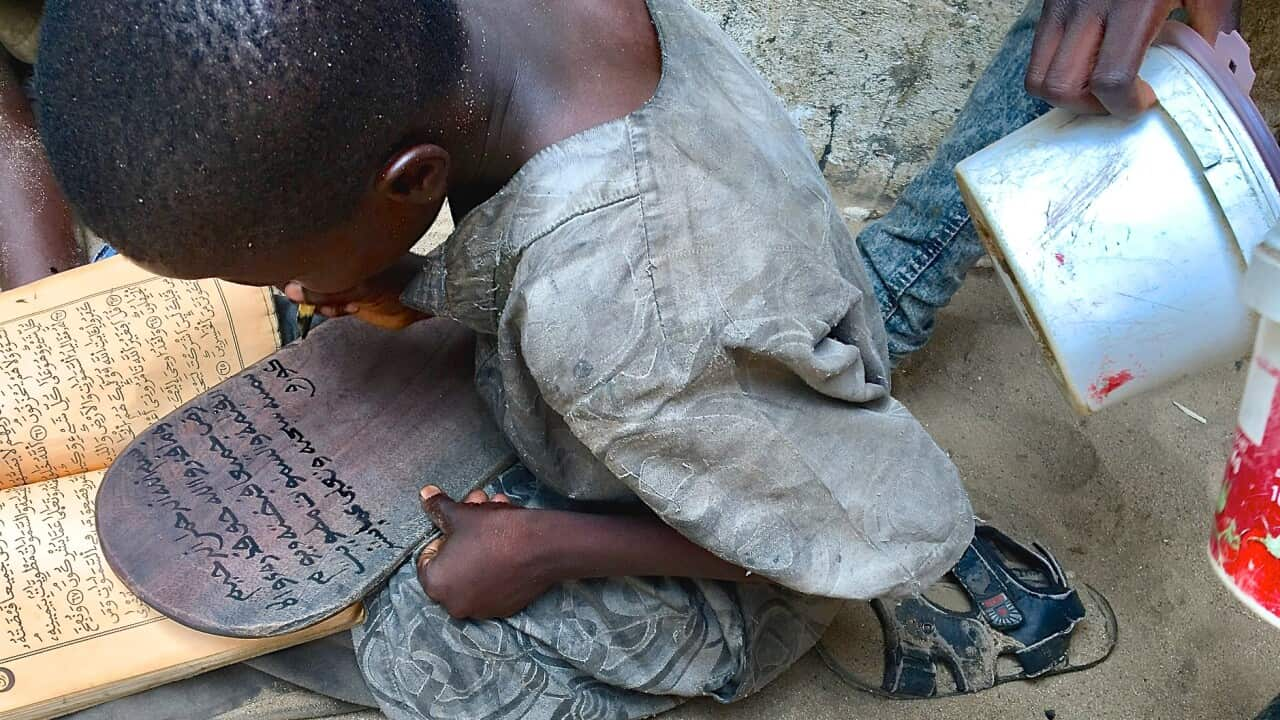Over 100,000 young Senegalese children studying at Quranic schools have been forced into begging for their own food and money for their teachers according to new estimates from human rights organisations, Human Rights Watch and Protection of Human Rights (PPDH).
The new report, ”, details how the talibés (young male students who leave their families to study the Quran) live a life of severe abuse, exploitation and neglect in the impoverished Quranic schools.
Talibés who can’t afford to eat are forced to beg for food, rice and sugar, while others beg for money with many set daily quotas ranging from 100 to 1,250 francs CFA ($0.25-$3 AUD) in a country where the average monthly wage is ($225AUD). Students are threatened with physical abuse by their teachers and their assistants if the money is not raised according to the organisations.

Boys often hold empty tomato cans or plastic bowls as they beg for money. Source: Human Rights Watch
While the report details how many Quranic teachers care for and respect the rights of the children in their care; “many others have taken advantage of the unregulated system to exploit their talibés under pretext of teaching the Quran.”
The 71-page report focuses on the years 2017-2018 and covers the deaths of 16 talibé children from beatings, neglect, or endangerment by teachers in the daaras.
The report also details the widespread abuses against talibés that have occurred in eight of Senegal’s 14 regions:
“including 61 cases of beatings or physical abuse; 15 cases of actual or attempted rape or sexual abuse; 14 cases of children imprisoned, tied, or chained in the schools; and widespread forced begging and neglect.”
According to the report, children detailed being tied up and imprisoned in rooms within daaras, sometimes for weeks or months, as punishment.
“If we tried to run away, the marabout (teacher) would chain us by both legs, so we couldn’t move,” a 13-year-old talibé from the Diourbel region said.
“I didn’t like the daara because they hit us all the time – if we didn’t memorise the verses of the Quran, or if we didn’t bring money (to the teachers),” a 9-year-old talibé, who escaped his daara in Dakar said. “At the daara, they beat you until you think you will die.”
Of the 22 daaras visited by the report’s researchers, they found:
“13 provided little or no food to the children; many housed children in squalid, decrepit, or abandoned buildings – often with no working latrines, soap, or mosquito nets to protect children from malaria.”
The schools were found to be so poorly constructed that four daaras included in the report had recently dealt with fires – three of which caused deaths or injuries to children inside the premises.

Children between the ages of 5-15 make up the estimated 100,000 beggars. Source: Human Rights Watch
The abuse of talibés has been one problem government officials in the country have tried to address, with two programs in Dakar rolled out in June 2016 and March 2018. However, outside of the capital city, the programs have made little impact.
The African nation also has commitments under international laws to protect children from violence, physical and sexual abuse, neglect, exploitation and human trafficking and a penal code that punishes child abuse and exploitation with jail terms. However, talibés continue to be exploited by teachers of under the pretext of education by being forced into begging.
“Talibé children are filling the streets, suffering horrific abuse, and dying from abuse and neglect,” said Corinne Dufka, associate Africa director at Human Rights Watch. “Senegalese authorities say they are committed to protecting children and ending forced child begging, so why are so many abusive, exploitative, or dangerous daaras still operating?”
Mamadou Wane, president of PPDH added: “With his new mandate, President Sall has the opportunity to make a lasting impact on thousands of children’s lives by protecting talibés from exploitation and ending abuses in certain so-called daaras.
“The enormous suffering of children in these pseudo-daaras must come to an end.”

In 43 of the documented abuse cases, children were beaten by marabouts or their assistants for failing to bring the requested sum of money after begging. Source: Human Rights Watch


